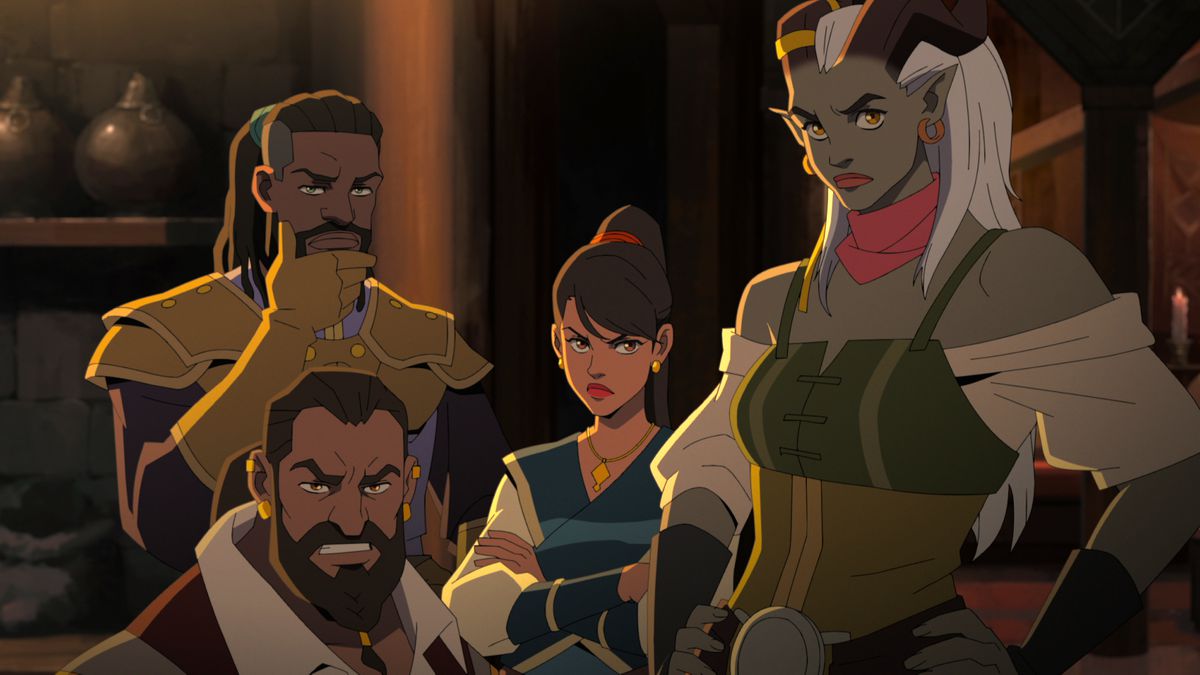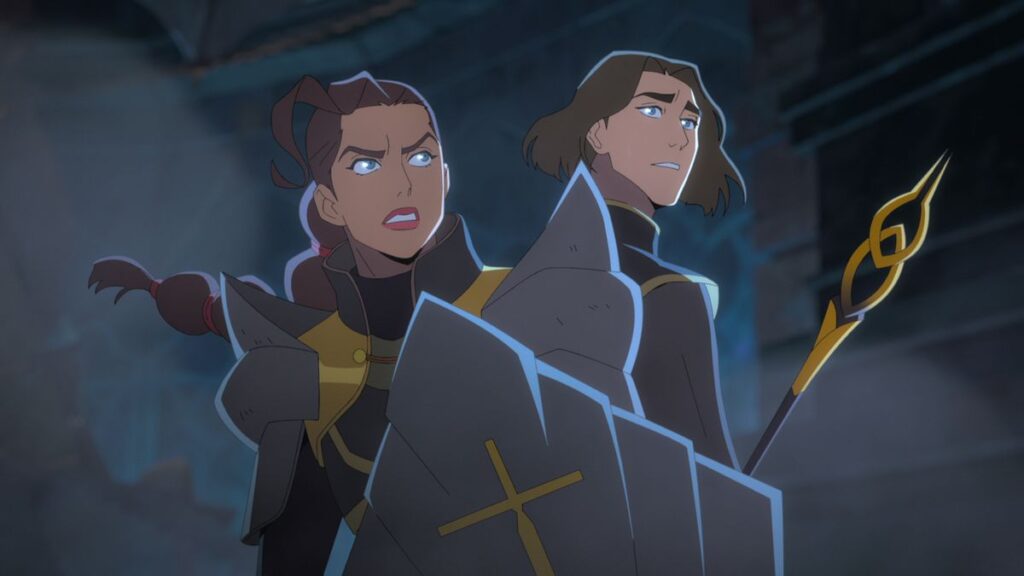If you ask BioWare’s John Epler about Dragon Age: Absolution, he singles out one aspect of the Netflix animated spinoff as building toward the long-awaited fourth Dragon Age game, Dragon Age: Dreadwolf. And it’s not the stinger of the final episode, when an old foe thought dead made an unexpected comeback.
Instead, Epler highlights the way that the crew on Absolution was able to delve into the fictional country of Tevinter, a dark empire supported by slavery and human sacrifice-fueled magic, and one that fans have expected to be the setting of Dreadwolf for the better part of a decade, ever since the final scene of Dragon Age: Inquisition’s final DLC adventure.
“The most important thing for us was […] to make sure that we didn’t shy away or gloss over the sins of Tevinter, especially when you go to such an extreme country,” Mairghread Scott, Absolution’s showrunner, told Polygon.
It’s that unflinching look, Epler added, that “provides us with with opportunities, in the future, to go more into those places with a conflict. What do people living in there that are actually genuinely good people, not just people who see themselves as good people, look like?”
And if one thing was clear, when Polygon sat down with Scott and Epler via video to chat about Absolution, it was that to them, Tevinter wasn’t just a consortium of powerful mage politicians, a particular kind of architecture, or a location on a fantasy map. Tevinter was the opportunity to create fascinating, flawed, and perhaps distressingly relatable characters.
[Ed. note: Some spoilers for Dragon Age: Absolution follow.]
Image: Netflix
Absolution boasts a quartet of Tevinter characters: the reluctantly heroic Miriam, a formerly enslaved elf; her paramour, Hira, a mage who has turned her back on her country; Tassia, a warrior who believes her role is to protect others at all costs; and the series’ main villain, the magister Rezaren Ammosine.
Rezaren is a portrait in denial — the way he sees it, he’s doing everything he can to right a wrong, reunite his family, and resurrect his brother. The reality is that he will never see his “siblings” as anything other than property, and he will never relinquish the superiority Tevinter offers him as a slave-owning, highly ranked mage.
“We write very sympathetic villains, who are essentially encouraging you to look away from their misdeeds,” Scott said, “but ultimately, it was really important for me to try and look them in the eye as much as we could. […] It’s really easy in a story like Dragon Age to gloss over some of the evils of abuse, slavery, caste systems. I really felt like it was important that we look at those in a manner as realistic as we could — or as respectful as we could; it’s hard to say realistic in a fantasy setting.”
“A lot of the people living within [Tevinter] have tricked themselves or have convinced themselves that, Well, this is just the way things are,” Epler said. “Rezaren is a person who sees, Yeah, of course, it’s unfair, of course, but this is just the world we’re in. It’s interesting, because ultimately, I think that is the Tevinter attitude for a lot of people. It also provides an interesting ability to contrast that with people who are in that society and maybe don’t see things the exact same way; they don’t just accept that this is the way things are.”
Players of Dragon Age: Dreadwolf, to judge by the brief teasers BioWare has released, will be venturing to Tevinter to oppose Solas, a renegade mage and cult leader last seen rallying the downtrodden of the world to his cause, but who secretly plots to tear reality asunder. In other words, in classic Dragon Age fashion, it’s a complex ethical situation that looks to be happening in an even more morally complex place.

Image: Netflix
For a twist, Polygon closed the chat with a simple question. From the sprawling cast of Dragon Age: Inquisition, why choose Fairbanks (voiced by Matt Mercer), the Orlesian freedom fighter, as the show’s most prominent ripped-from-the-games character? It turns out, there was a simple answer. And, according to Scott, it had nothing to do with “the sheer joy it is to kill [Mercer] as many times as humanly possible.”
“Look, I’ll be honest, I really couldn’t bring myself to kill Harding,” Scott said, referring to one of Inquisition’s fan favorite (yet not romantically available to the player) characters. “Like, No, I’m still hoping to romance her. […] We also wanted to build a real sense of danger for our characters. Having the leader of the team and the guy who in theory planned most of this die really early was a way to get the audience to understand that all bets were off the table.”

